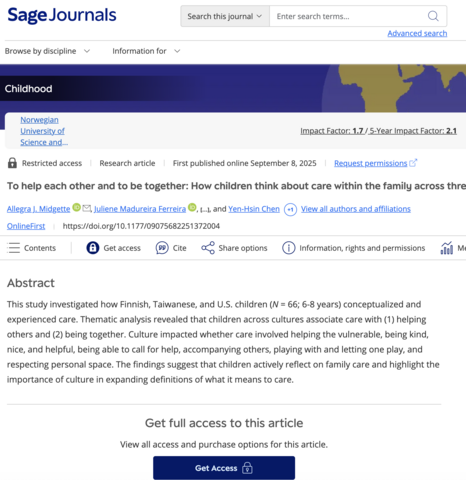This study investigated how Finnish, Taiwanese, and U.S. children (N = 66; 6-8 years) conceptualized and experienced care. Thematic analysis revealed that children across cultures associate care with (1) helping others and (2) being together. Culture impacted whether care involved helping the vulnerable, being kind, nice, and helpful, being able to call for help, accompanying others, playing with and letting one play, and respecting personal space. The findings suggest that children actively reflect on family care and highlight the importance of culture in expanding definitions of what it means to care.

